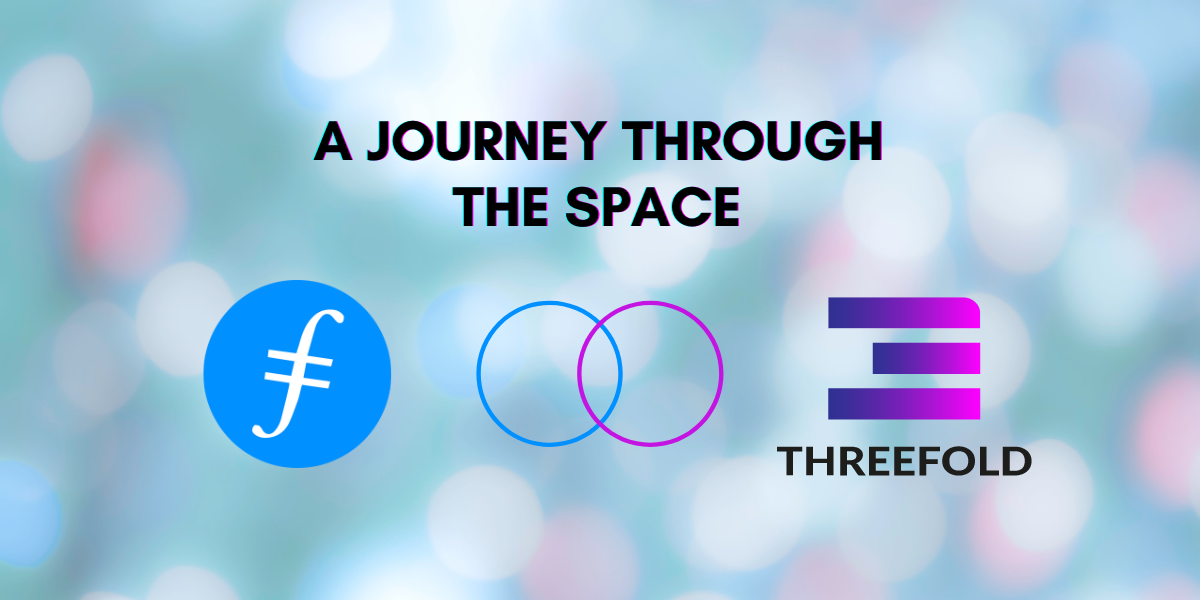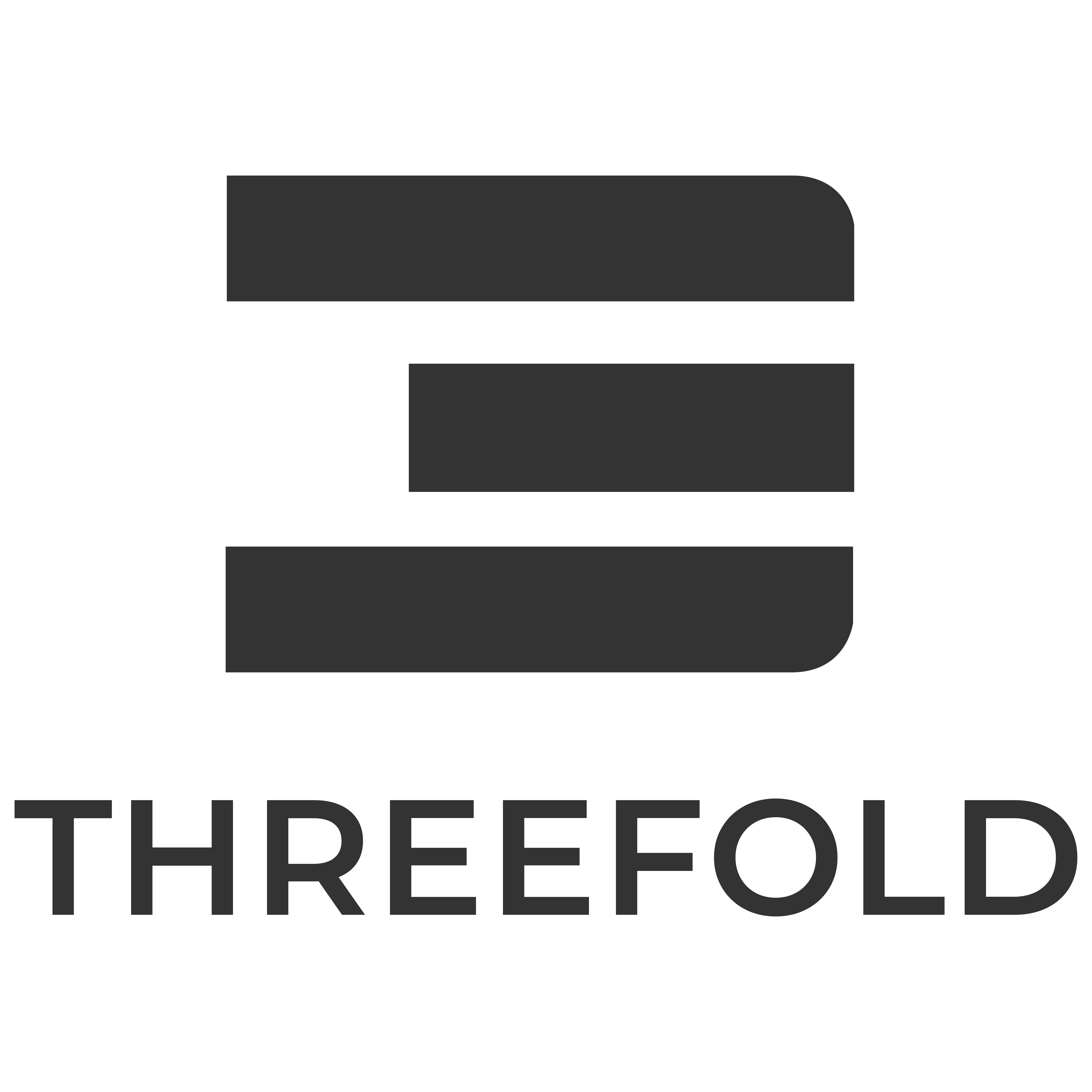A Journey through the Decentralization and Blockchain Space – Part Three: Filecoin
This post is the third one in a series to look into fellow projects and their solutions to better understand the space we operate in and how ThreeFold stands out. This time, we're taking a closer look at Filecoin!

“This article was originally published by Hannah Cordes, a former member of ThreeFold Foundation.”
Welcome to the third stop on our journey that aims to better understand the space we operate in and how ThreeFold stands out. After exploring Dfinity and Akash, I will now take a closer look at Filecoin to discover the similarities as well as differences of their project and ThreeFold. Let’s dive right in!
🔗Filecoin & how the project compares to ThreeFold
Filecoin is a global decentralized storage network and marketplace, founded in 2014 and based on the peer-to-peer protocol IPFS. The open-source project is one of the most popular providers of decentralized storage, with people storing files reliably on their mainnet. Like IPFS, Filecoin was founded by Protocol Labs.
IPFS and Filecoin are two separate but complementary open-source protocols. IPFS enables users to store, request, and transfer their data on Filecoin in a reliable way and directly from the IPFS network. As we deeply care about data security and privacy, I’d like to point out that IPFS does not provide a privacy layer and that, subsequently, “all traffic on IPFS is public” – meaning there is no guarantee that your data would be stored privately and confidentially. At ThreeFold, we’re determined to provide a holistically secure IT ecosystem with various secure and private solutions, such as our Quantum Safe File System (QSFS) and Planetary Network, to empower users by giving them control and ownership of their data.
Filecoin provides a persistent data storage system and has built an incentive structure on top of the IPFS protocol to reward the provisioning of storage for other people’s data. The project offers a peer-to-peer cloud storage network and marketplace, offering an open market and reducing entry barriers to becoming a storage provider.
We also offer a peer-to-peer network and cloud solution. Our ThreeFold Grid is the most advanced distributed peer-to-peer network there is, currently present in more than 50 countries. While Filecoin also has its own underlying blockchain, we’re the first full-stack blockchain-enabled cloud to be made open source. Moreover, we offer an energy-efficient full stack cloud infrastructure that unites compute, storage, and network, and integrates all leading industry-standard tools – allowing for a seamless migration of any digital workload, even from traditional cloud providers like Microsoft Azure or AWS.
With our cloud solution, developers are also enabled to deploy virtual machines or to discover the future of cloud computing with ZFlist, a game-changing Docker-compatible solution. As ZFlist is distributed across many mini virtual machines (VMs), it provides the ideal infrastructure for edge workloads on a highly secure level. On top of that, the data produced by these workloads can be stored in our Quantum Safe File System (QSFS) solution. Our QSFS is highly compatible with most storage tools (e.g. S3) and protocols (e.g. IPFS). In addition to that, developers using our tech are enabled to set the terms for storing their workloads based on their needs – they even have the opportunity to scale their applications to the edge with powerful compute and storage capabilities.
By contributing and lending storage capacity on Filecoin’s marketplace, providers receive rewards, executed by Filecoin’s blockchain. However, providers can only participate in Filecoin’s market if their nodes are “built specifically for Filecoin.” Actually, Filecoin nodes are IPFS nodes and their most advanced implementation is based on Lotus, the Filecoin Node Client. Our 3Nodes have easy plug-and-play functionalities, allowing even people without technical skills to participate by getting a 3Node from one of our certified hardware partners and downloading our stateless and lightweight operating system Zero-OS, the driving force behind our Grid. 3Nodes can even be plugged in at your home. Filecoin, however, doesn’t seem to offer any kind of certified hardware.
While we’ve built our own operating system from scratch, starting just with a Linux kernel, Filecoin doesn’t have its own OS. ThreeFold is not only more inclusive but also has a much higher scalability as anyone’s able to participate. In contrast, Filecoin even issues a warning in their documentation which states that in order to run a successful mining operation, one has to meet high hardware requirements and to be highly familiar with Filecoin. Thanks to our autonomous, self-healing technology, no maintenance is required. To ensure the security of our 3Nodes can’t be accessed physically once booted. Therefore, our ThreeFold Grid is much more inclusive, as the network capacity on it is provided by many people and organizations constituting what we like to call “People’s Internet.” Currently, we’re planning to extend our reach to enable even more people to join the ThreeFold Grid.
Filecoin’s native token FIL and the ThreeFold Token (TFT) are both utility tokens that fuel an open-source cloud. The earning model for FIL follows a simple logic for earning: the more storage a miner adds, the more FIL the respective miner will be rewarded with while also receiving FIL from users leasing their storage capacity. However, Filecoin miners must stake their FIL and can even lose their stake if their node does not perform, whereas our farming model doesn’t require staking, so farmers don’t risk losing their funds. In addition to that, our ThreeFold Tokens (TFT) can represent either a unit of compute, storage or network on the ThreeFold Grid and our farmers are rewarded for connecting one of these types of capacity to our Grid. Moreover, we’ll soon implement a new discount model, providing users with discounted capacity pricings based on the amount of ThreeFold Tokens stored in a user’s wallet.
In Filecoin’s model, mining means contributing storage capacity to be leased by users on the marketplace that are looking to store their data. Currently, Filecoin has two types of miners – storage miners, who are responsible for storing data, and retrieval miners, who are responsible for the fast retrieval of files. A retrieval miner’s “ability to close retrieval deals” are determined by the miner’s respective bandwidth and response time. ThreeFold’s farming is the concept of expanding the Internet with more network, compute, and storage capacity. Farmers are rewarded income in the form of TFTs for providing internet capacity. Moreover, anyone can become a farmer, as farmers are independent from ThreeFold. There’s no technical knowledge is required to connect to our global peer-to-peer Internet infrastructure and all it takes is network bandwidth and electricity, in addition to our 3Node – without the interference of any type of intermediary. Therefore, a ThreeFold Farmer is ThreeFold’s more sustainable equivalent of the miners of other cryptocurrencies, disrupting the centralized data center model.
🔗Conclusion
To conclude, the two projects share the same vision of bringing users’ data closer to their respective owners, establishing an open cloud market that is independent from the few big centralized cloud providers currently dominating the market. Like ThreeFold, Filecoin seeks to provide a network built as well as owned by the people, regardless of their location. Nevertheless, Filecoin is focused on storage and mainly based on the IPFS protocol, only providing an incentive layer on top. In contrast, ThreeFold provides all three major low-level components of the internet’s backbone: compute, storage and network. Additionally, ThreeFold’s P2P Cloud offers a holistic set of solutions – from our Planetary Network and our Quantum Safe File System to our eVDC and marketplace. All in all, the technology and infrastructure we’re providing is turning traditional IT upside down.
This is why ThreeFold is the ideal substrate for projects like Filecoin to run on, as we’re already IPFS-compatible and provide the low-level primitives for a fully decentralized cloud. So, we believe Filecoin and ThreeFold could team up to jointly drive the decentralization of cloud.
On their website, Filecoin states that they’re all about “coming together to collaborate and build something greater,” so they seem open to collaboration – which is very appealing to us, as we truly believe in collaboration to effect change at a large scale to fully decentralize the Internet and Cloud. Thanks for continuing this journey with me and don’t forget to stay tuned for the next stop: Storj!


